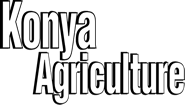
Smart Farming and Organic Agriculture Trends
As the agricultural industry evolves, smart farming and organic agriculture are becoming key trends shaping the future of food production. Smart farm technologies are revolutionizing traditional farming practices by utilizing cutting-edge innovations such as IoT devices, AI-powered systems, and precision farming techniques. These technologies enable farmers to optimize resources, increase productivity, and ensure sustainability. At the same time, organic agriculture continues to grow in popularity, driven by consumer demand for healthier, eco-friendly products. The convergence of smart farming and organic practices offers exciting opportunities to create more efficient, sustainable, and eco-conscious agricultural systems. To discover these technologies and meet the leading exhibitors in the field, don't forget to visit the Konya Agriculture Fair.
The Role of Technology in Smart Farming
At the heart of smart farming is the integration of smart farm technologies that provide farmers with the tools to make real-time decisions. Some of the most widely used technologies in this field include:
- IoT Sensors: These devices collect real-time data on soil moisture, temperature, humidity, and other environmental factors. This allows farmers to monitor crop conditions and adjust their practices accordingly.
- GPS Technology: GPS is used to guide autonomous machinery[DY1], such as tractors and harvesters, to ensure precise planting, fertilization, and harvesting processes. This reduces labor costs and minimizes errors.
- AI and Machine Learning: AI algorithms can process vast amounts of data from sensors and other sources to predict crop yields, detect diseases, and optimize irrigation schedules, all while providing actionable insights.
- Drone Technology: Drones are used to survey large areas of farmland, capture high-resolution images, and provide valuable insights into crop health, pest infestations, and overall field conditions.
As these smart farming technologies continue to evolve, they promise even greater efficiency and accessibility, allowing farmers to optimize their processes and make more informed decisions.

Organic Agriculture in Türkiye
Organic agriculture has seen remarkable growth worldwide, and Türkiye is no exception. Known for its diverse climate, fertile land, and rich agricultural heritage, Türkiye offers a perfect environment for organic farming. Organic agriculture methods not only focus on avoiding synthetic chemicals and fertilizers but also emphasize sustainability, biodiversity, and soil health. This shift towards organic farming in Türkiye is driven by consumer demand for healthier food and the country's commitment to sustainable agricultural practices. In 2022, Türkiye had 268 certified organic products, with organic farming areas comprising only 1.5% of the total agricultural land. The sector employed 44,927 farmers, covering a total production area of 310,584 hectares.*(Source:Republic of Türkiye Ministry of Environment Urbanization and Climate change)
Organic Farming Methods in Türkiye
Organic farming in Türkiye relies on a variety of methods that enhance sustainability while preserving the quality of the land. Some of the key organic agriculture methods include:
- Crop Rotation: This method involves changing the types of crops grown in a specific area over time to prevent soil depletion and control pests naturally.
- Composting: Organic farmers use composting to recycle organic waste into nutrient-rich soil that helps maintain soil fertility.
- Biological Pest Control: Instead of relying on chemical pesticides, organic farmers use natural predators and microorganisms to control pests.
- Green Manure: The practice of growing specific plants to improve soil health and reduce erosion.
For those interested in learning more about organic farming and exploring innovative agricultural technologies, don't forget to visit the fair show. It’s a great opportunity to see the latest trends in organic farming and meet with industry experts and exhibitors!

 TR
TR
